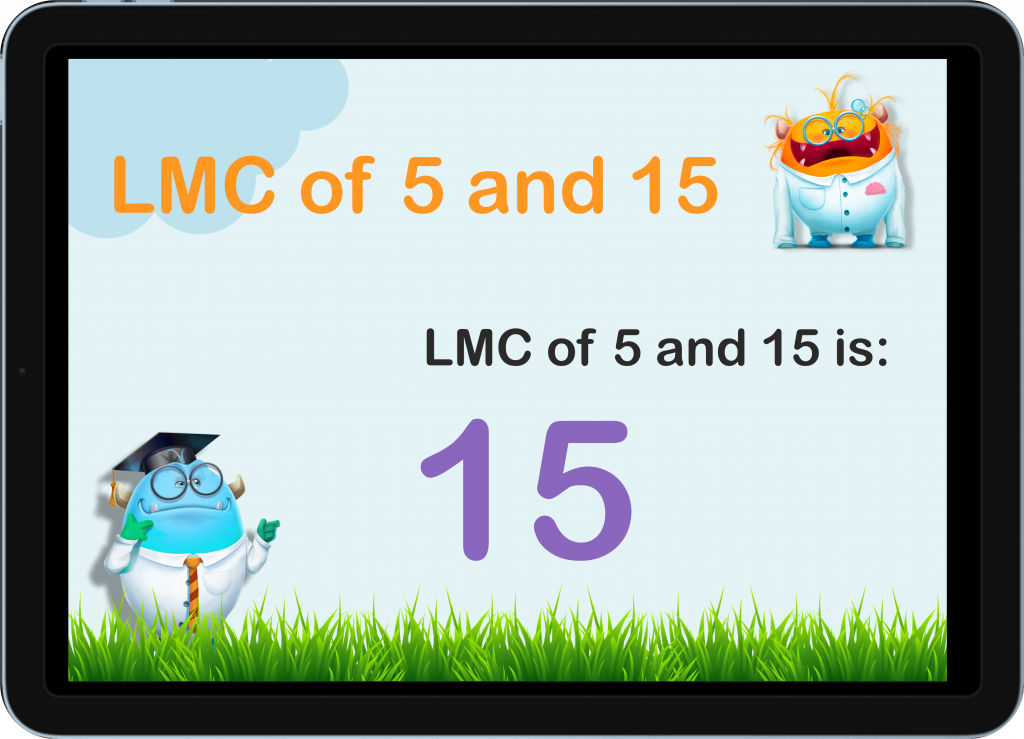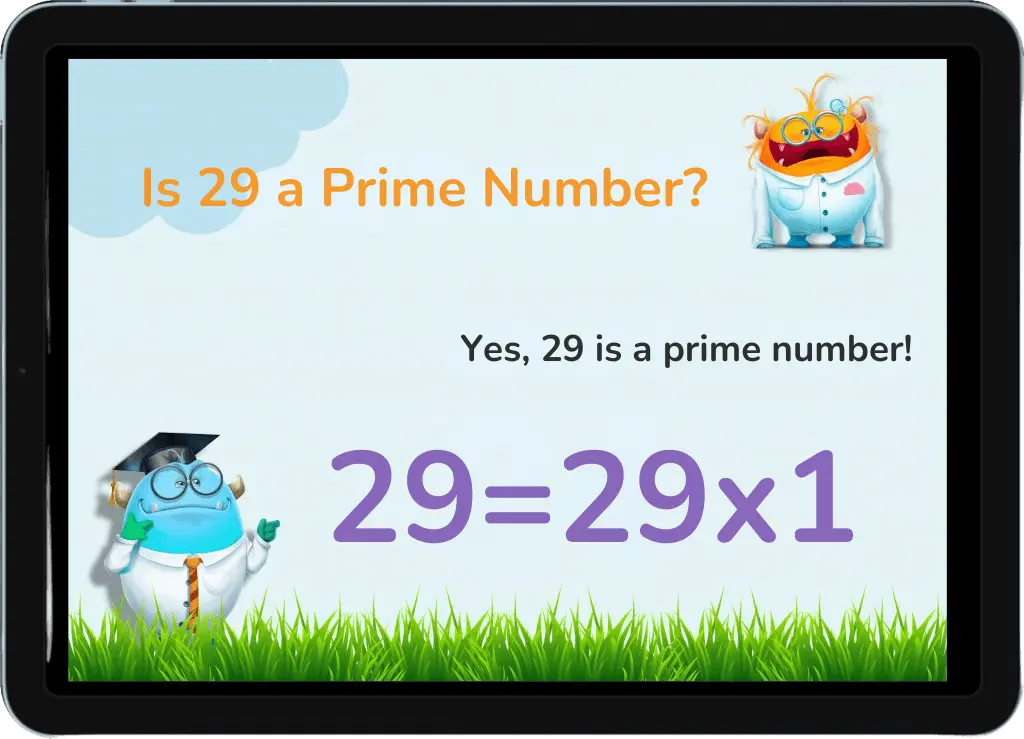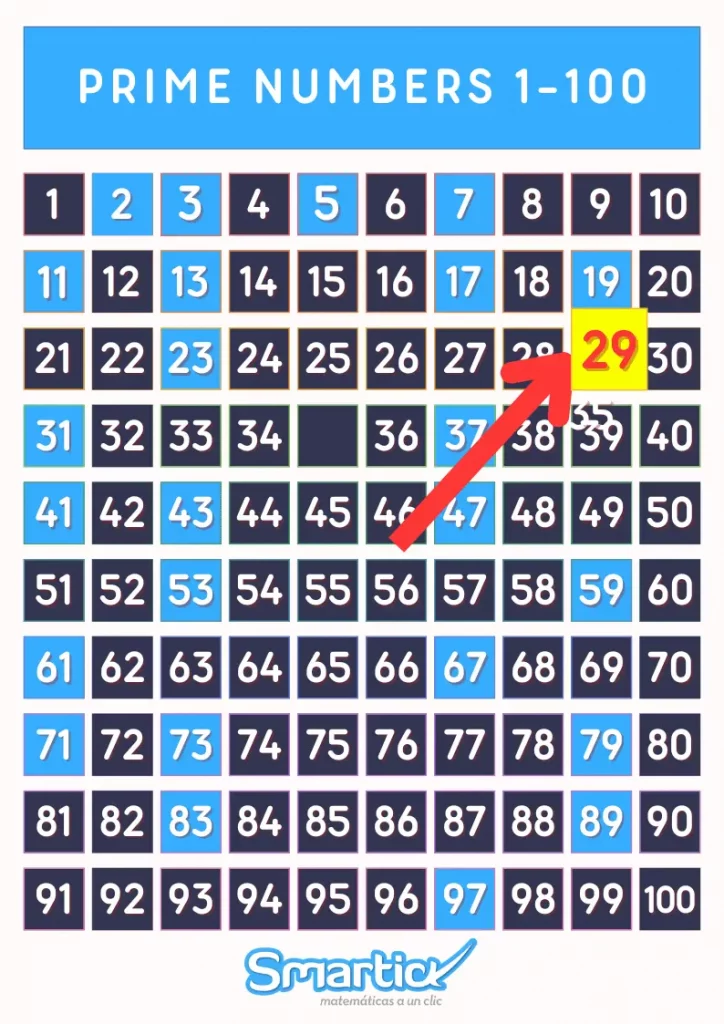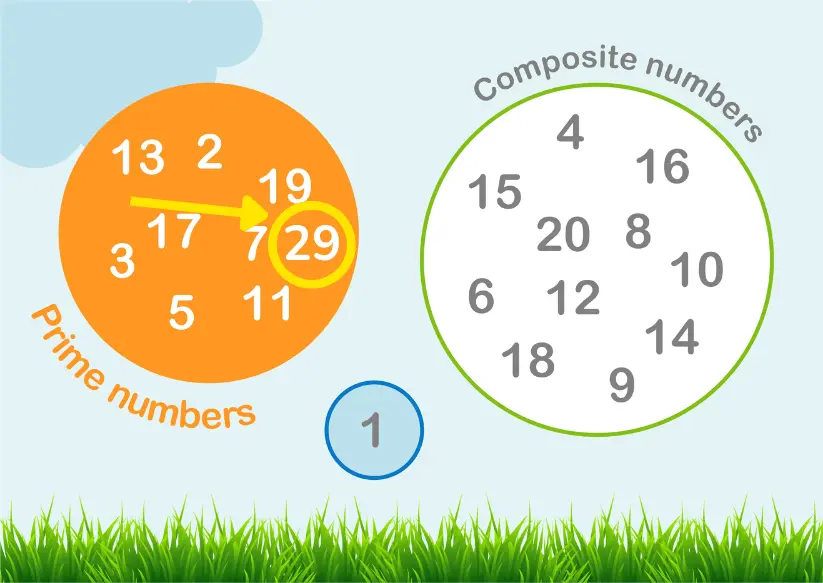Is 2 A Prime Number?
Prime vs. Composite Numbers
Greetings, young math enthusiasts! Today, let’s set sail on a mathematical voyage to determine if 2 is a prime number, and learn more about the difference between prime and composite numbers.

Is 29 a Prime Number?
Or is 29 a Composite Number?


No credit card required

No credit card required
Understanding Prime Numbers
Checking if 29 is a Prime Number
Is 29 a Prime Number?
Mathematical Proof
Interesting Facts About 29
Is 29 a Twin Prime?
Is 29 a Composite Number?
Hello kids! Have you ever wondered about the secret world of prime numbers? These numbers are like the ninjas of mathematics, stealthy and unique. Today, we’re diving into the mysteries of the number 37. Ready to unravel some math magic?
Understanding Prime Numbers
First things first, what exactly is a prime number?
Think of a prime number as a secret club where only the special numbers can join. To be a member, a number must have only two ” secret friends” or divisors: 1 and itself. That means it can’t be divided evenly by any other numbers. For example, 2, 3, 5, 7, and 11 are all prime numbers. They only hang out with 1 and themselves.
Prime numbers are important because they are the building blocks of all other numbers. Just like how you can build anything with Lego bricks, you can create any number using prime numbers!
Checking if 29 is a Prime Number
Now, let’s see if 29 can join the prime number club. We need to check if it can only be divided by 1 and 29. Here’s how we do it:
- Divisibility by 2: Is 29 even? Nope! So, it’s not divisible by 2.
- Divisibility by 3: If you add the digits of 29 (2 + 9), you get 11. Since 11 is not divisible by 3, neither is 29.
- Divisibility by 5: Does 29 end in 0 or 5? Nope again!
Since 29 isn’t divisible by 2, 3, or 5, and there aren’t any other smaller numbers to check, we can say that 29 can only be divided by 1 and itself. That makes 29 a prime number! High five, 29!
Is 29 a Prime Number?

Yes, 29 is a prime number. It has no divisors other than 1 and itself, confirming its prime status. This makes 29 an important part of the prime number sequence in mathematics.
Mathematical Proof
Alright, let’s prove it like real mathematicians. We’ve already checked the smaller numbers. But there’s a fancier way called “trial division.” It means we divide 29 by all prime numbers less than its square root. The square root of 29 is about 5.39, so we only need to check the primes 2, 3, and 5.
- 29 ÷ 2 = 14.5 (not an integer)
- 29 ÷ 3 = 9.67 (not an integer)
- 29 ÷ 5 = 5.8 (not an integer)
Since none of these divisions result in whole numbers, it confirms that 29 is a prime number.
Interesting Facts About 29
Numbers have some fun and weird facts, and 29 is no exception. Here are some cool things about 29:
- 29 is the 10th prime number: In the sequence of prime numbers, 29 holds the 10th spot.
- Sum of three consecutive squares:22 + 32 + 42
- A Sophie German Prime: A prime number p such that 2𝑝+1 is also prime.
- 29 days in February: Every four years, February has 29 days instead of 28. It’s called a leap year!
- 29 is a Lucas prime, a Pell prime, and a Tetranacci number.
Is 29 a Twin Prime?
Yes, it is! A twin prime is a pair of prime numbers that differ by 2. For 29, its twin is 31. Both are prime, and they sit next to each other in the prime number lineup, like best buddies.
Prime Numbers vs. Composite Numbers

Okay, let’s talk about the difference between prime and composite numbers. Remember how prime numbers can only be divided by 1 and themselves? Composite numbers are different. They can be divided evenly by numbers other than 1 and themselves. Think of them as being more sociable and having more “friends.”
For example, 4 is a composite number because it can be divided by 1, 2, and 4. So, 4 has three friends! Prime numbers are more exclusive, with only 1 and themselves as friends.
Is 29 a Composite Number?
Nope, 29 is not a composite number. Since it only has two friends (1 and itself), it’s a prime number. Composite numbers have more friends, remember? Like 4, 6, 8, 9, and so on.
Go and Learn!
So there you have it, mathegicians!
We’ve learned that 29 is a prime number because it can only be divided by 1 and itself. It’s also a twin prime, hanging out with its buddy 31. And it’s definitely not a composite number because it doesn’t have more than two friends. Prime numbers are special and play a big role in the world of math. They help us understand how numbers work and build all the other numbers we use every day.
Next time you see the number 29, remember it’s not just any number – it’s a prime number! Maybe you can impress your friends and family with these cool facts. Keep exploring and having fun with numbers, and who knows, you might discover something amazing yourself!
Learn More About Prime Numbers
© 2024 Smartick. All Rights Reserved.
